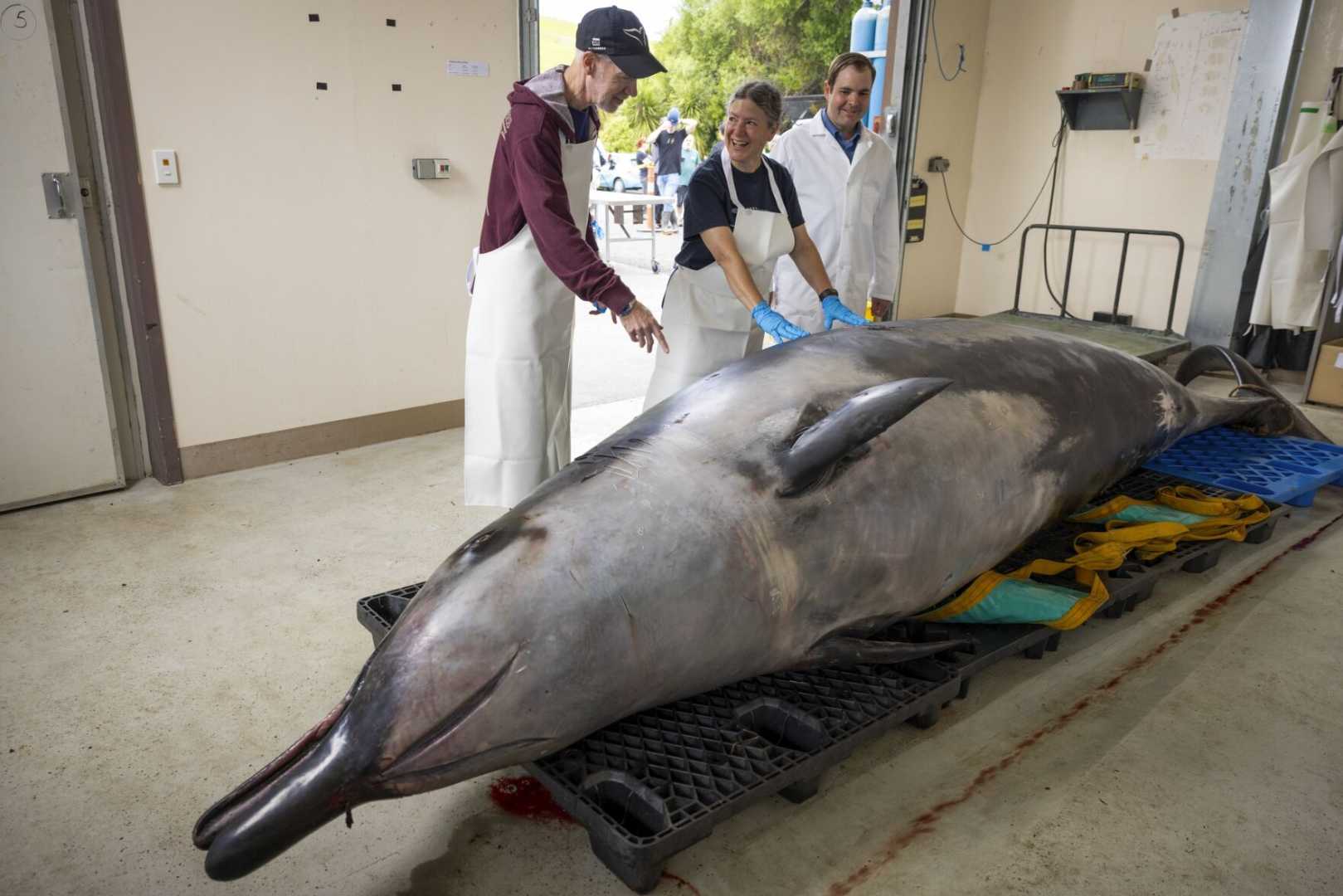News
New Zealand Scientists Begin Historic Dissection of World’s Rarest Spade-Toothed Whale

New Zealand scientists have embarked on a groundbreaking project to dissect the world’s rarest whale, the spade-toothed whale. This species, belonging to the family of beaked whales, is so elusive that only seven specimens have ever been documented since its first description in 1874.
The dead spade-toothed whale, measuring five metres (16.4 feet) long, washed ashore on New Zealand’s South Island earlier this year. It was winched off the beach in July and stored in a special freezer until the dissection began on December 2, 2024. This is the first time scientists have had the opportunity to dissect a complete spade-toothed specimen.
The week-long dissection, led by a team of scientists at the Invermay Agresearch Centre in Mosgiel, is a collaborative effort between Te Rūnanga o Ōtākou and the Department of Conservation (DOC). The process aims to fill in significant gaps about the whale’s behavior, diet, and basic anatomy. Whale expert Anton van Helden emphasized the global significance of this opportunity, noting that beaked whales are the most enigmatic group of large mammals on the planet.
The spade-toothed whale is classified as “data deficient” under the New Zealand Threat Classification System due to the scarcity of specimens and the absence of live sightings. The dissection will include detailed examinations of the whale’s structures used for sound production, stomach layout, and even the exact number of vertebrae, providing crucial insights into this mysterious species.
The research also holds cultural significance, as it allows mana whenua (Indigenous territorial rights and authority) to reconnect with and apply traditional knowledge and cultural practices. Nadia Wesley-Smith, chair of Te Rūnanga o Ōtākou, highlighted the importance of this opportunity for Indigenous communities.












